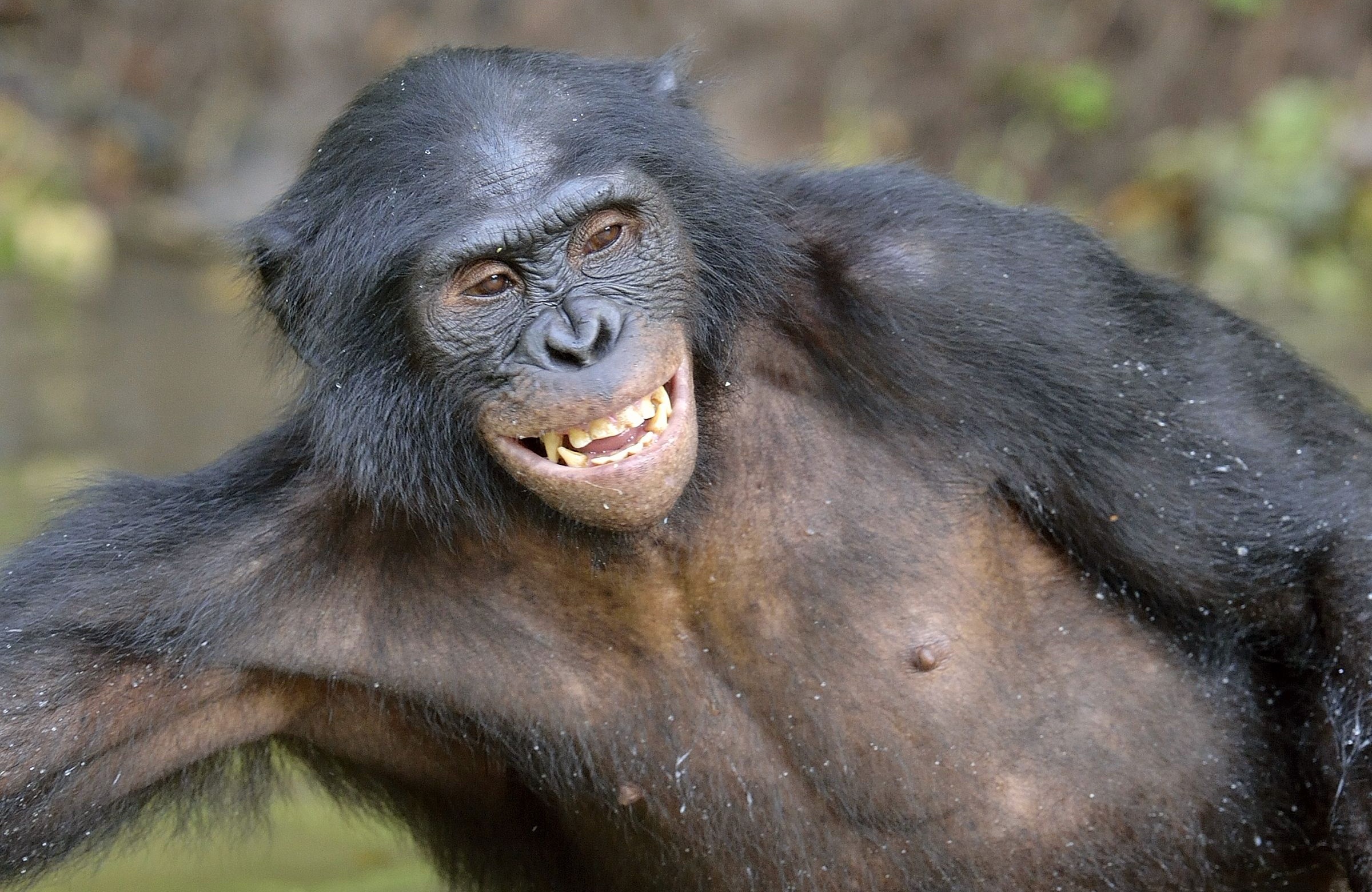When humans burst into laughter together, moods lift almost automatically. New research shows that a similar boost happens in our closest cousins.
An international team led by Indiana University scientists has discovered that bonobos become more upbeat after hearing the giggles of their companions. This finding pushes the evolutionary history of positive emotions back millions of years.
Laughter changed ape choices
To explore laughter’s influence, the researchers designed a cognitive-bias test often used in animal psychology to gauge optimism or pessimism.
First, they trained bonobos at the Ape Initiative in Des Moines, Iowa, to recognize two kinds of boxes: black ones that always contained a delicious snack and white ones that were always empty.
Once the apes consistently chose black and ignored white, the experimenters introduced a third, ambiguous gray box. They then played one of two sounds: recorded bonobo laughter or a neutral control noise.
“We know that other apes, like chimpanzees, have contagious laughter during play,” said lead author Sasha Winkler, a primatologist at Duke University. “We were wondering if that behavior could be explained by positive emotions produced from the sound itself.”
If the bonobos felt a surge of good feeling after hearing laughter, the team expected them to treat the uncertain gray box as if it were the rewarding black one.
That is exactly what happened. “Think of it like the rose-colored glasses effect,” Winkler said. “The bonobos were much more likely to approach the gray boxes after hearing laughter, treating them like the rewarded boxes, and indicating a more optimistic expectation of finding a treat.”
Tracing optimism to our ancestors
This study is the first experimental proof that great-ape laughter can shift mood and cognition the way human laughter does.
“The tendency to behave more optimistically after hearing laughter suggests that the sound alone induced a positive emotional state in bonobos,” said senior author Erica Cartmill, the director of Indiana University’s Cognitive Science Program.
“This is the first study of which we’re aware to measure a positive affect shift in nonhuman primates from a brief experimental intervention.”
Great apes – bonobos, chimpanzees, gorillas, orangutans – all emit play calls that acoustically resemble human chuckles. Earlier work tied those sounds to a common evolutionary origin. The new findings add a cognitive twist.
“Our results suggest that laughter in other apes shares not only phylogenetic and behavioral similarities with human laughter but also perhaps some of the same cognitive-emotional underpinnings,” Winkler noted.
“This emotional contagion appears to have been present in the primate lineage long before the evolution of language.”
Laughter, empathy, and apes
Emotional contagion is often described as a foundational element of empathy – the capacity to share another’s feelings. As Winkler put it, “studies like ours can help to untangle the evolutionary building blocks of empathy, communication, and cooperation in humans.”
By revealing that a simple vocal cue can brighten outlooks in bonobos, the research suggests that the mechanisms linking social sound to positive mood were already in place in a common ancestor millions of years ago.
Cartmill added that the work answers a long-standing bias in emotion research. “Our emotions influence many aspects of cognition, including memory, attention, and decision-making, but research has historically focused on negative emotions with clear behavioral correlates, like fear and aggression.”
“We wanted to better understand the relationship between positive affect and cognition in our closest living relatives.”
Kanzi and the future of empathy
The experiments involved four bonobos, including the celebrated language-using ape Kanzi, who recently passed away.
“I feel incredibly grateful to have had the opportunity to work with Kanzi while he was still alive,” Winkler said.
“We hope this brings greater public awareness of the remarkable similarities between us and bonobos, who are an endangered species. We have so much to learn from these incredible animals.”
Future studies will test whether laughter exerts similar cognitive effects in chimpanzees and other primates. They will also explore how social context – for example, hearing laughs from friends versus strangers – modulates optimism.
For now, the discovery that bonobo giggles brighten expectations highlights a shared emotional heritage and hints that a simple laugh has been boosting group spirits since long before humans walked the Earth.
The study is published in the journal Nature Scientific Reports.
—–
Like what you read? Subscribe to our newsletter for engaging articles, exclusive content, and the latest updates.
Check us out on EarthSnap, a free app brought to you by Eric Ralls and Earth.com.
—–
